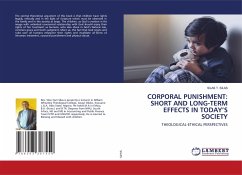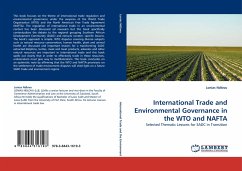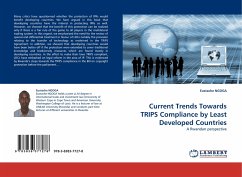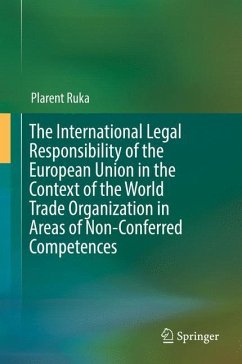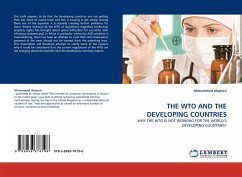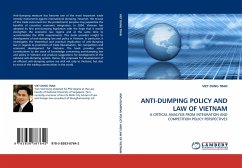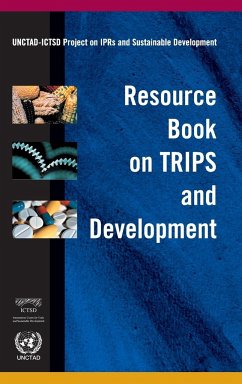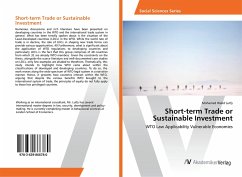
Short-term Trade or Sustainable Investment
WTO Law Applicability Vulnerable Economies
Versandkostenfrei!
Versandfertig in 6-10 Tagen
19,99 €
inkl. MwSt.

PAYBACK Punkte
10 °P sammeln!
Numerous discussions and rich literature have been presented on developing countries in the WTO and the international trade system in general. What has been timidly spoken about is the situation of the Least-Developed countries (LDCs) in the WTO. While the world rate of trade is in decline, the role of LDCs in shaping new trade forms can provide various opportunities. 40 Furthermore, what is significant about the application of WTO regulations to developing countries and particularly LDCs is the fact that this group comprises of 48 countries from which 32 are already WTO members. Given the con...
Numerous discussions and rich literature have been presented on developing countries in the WTO and the international trade system in general. What has been timidly spoken about is the situation of the Least-Developed countries (LDCs) in the WTO. While the world rate of trade is in decline, the role of LDCs in shaping new trade forms can provide various opportunities. 40 Furthermore, what is significant about the application of WTO regulations to developing countries and particularly LDCs is the fact that this group comprises of 48 countries from which 32 are already WTO members. Given the constraints on the thesis, alongside the scarce literature and well-documented case studies on LDCs, only few examples are alluded to therefrom. Thematically, this study intends to highlight how WTO came about within the classifications of developed and developing countries. To do so, the work moves along the wide spectrum of WTO legal system in a narrative manner. Hence, it presents how countries interact within the WTO, arguing that despite the various benefits WTO brought to the international system of trade, the principles of equity do not fully apply to those less privileged countries.



